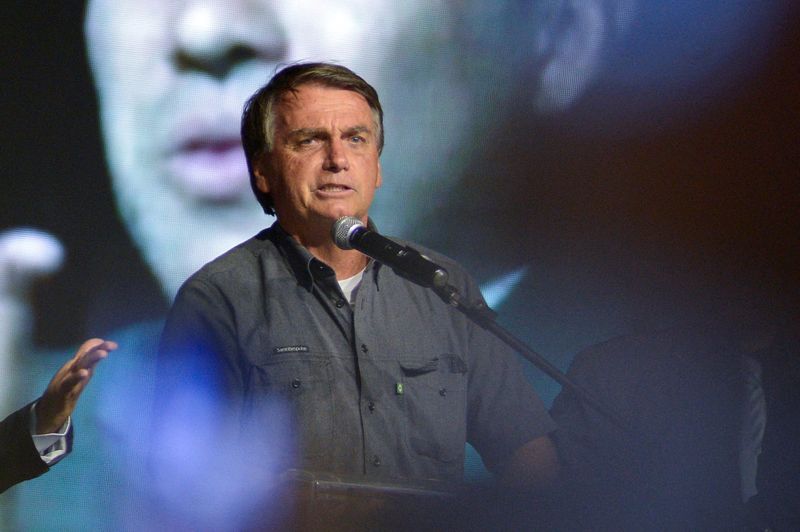By Anthony Boadle and Ricardo Brito
BRASILIA (Reuters) -Brazil’s Supreme Electoral Court (TSE) has withdrawn an invitation for the European Union to send observers for the October election after President Jair Bolsonaro’s government objected, the EU and the election body confirmed on Tuesday.
The TSE, Brazil’s top election authority, told Reuters last month that it had invited the European Union for the first time to observe this year’s general election, when Bolsonaro will seek re-election.
Two days later the foreign ministry objected, saying Brazil has never had its elections “evaluated” by an organization of which it is not a member.
The TSE said in a statement it found that “the necessary conditions were not present to enable a comprehensive electoral observation mission” after preliminary talks with EU officials.
Bolsonaro has questioned the validity of Brazil’s electronic voting system and made baseless allegations of fraud in the 2018 race, stirring concerns that he may not accept the results of the October election.
The EU said it had received an invitation letter from the TSE in March to send a team to explore the “usefulness, advisability and feasibility” of having an observation mission for the first time in Brazil for the elections.
“However, the TSE has since advised us that they will not pursue their request from March, due to reservations expressed by the Brazilian government,” Peter Stano, spokesman for foreign affairs for the European Commission, said. “Under these circumstances, we will not send an exploratory mission to Brazil to assess a possible EU observer mission.”
The TSE said the Organization of American States (OAS) and the parliament of South American trade bloc Mercosur have confirmed they will send missions. The U.S.-based Carter Center and International Foundation for Electoral Systems (IFES) have also been invited to send observers.
Opinion polls show leftist former president Luiz Inacio Lula da Silva has a comfortable lead over Bolsonaro, though his advantage has been eroded in recent surveys.
(Reporting by Anthony Boadle and Ricardo Brito in Brasilia and Jan Strupczewski in Brussels; editing by Barbara Lewis, Alexandra Hudson)





















